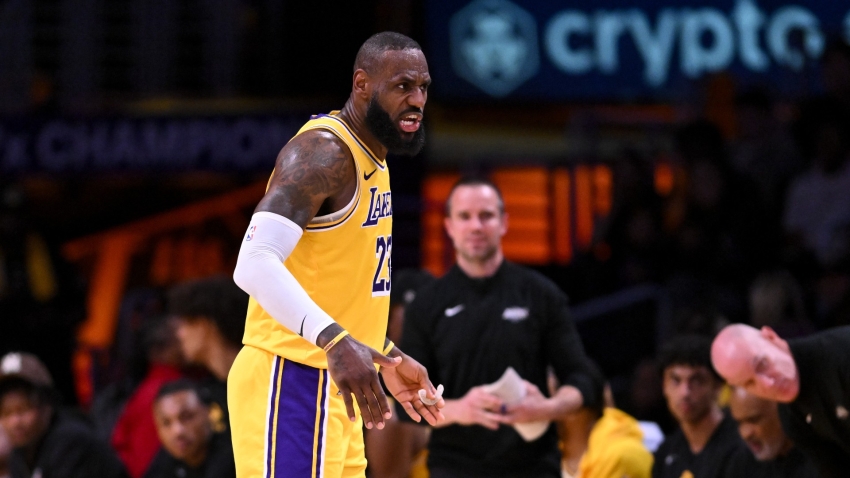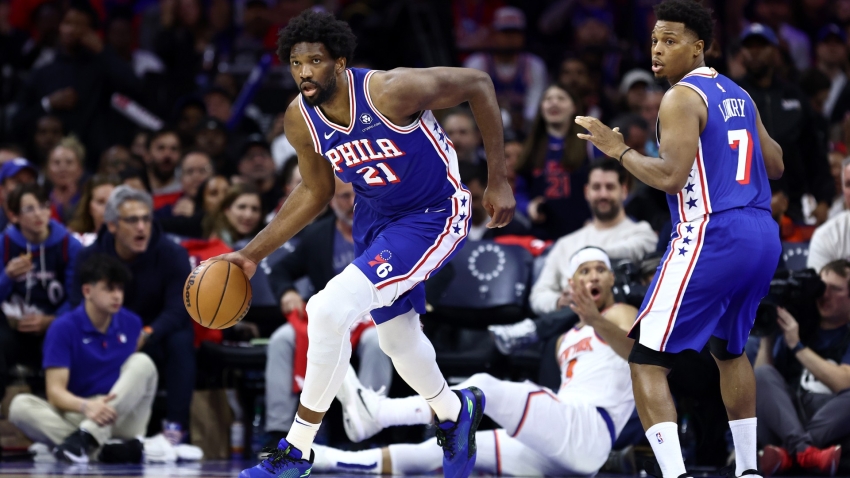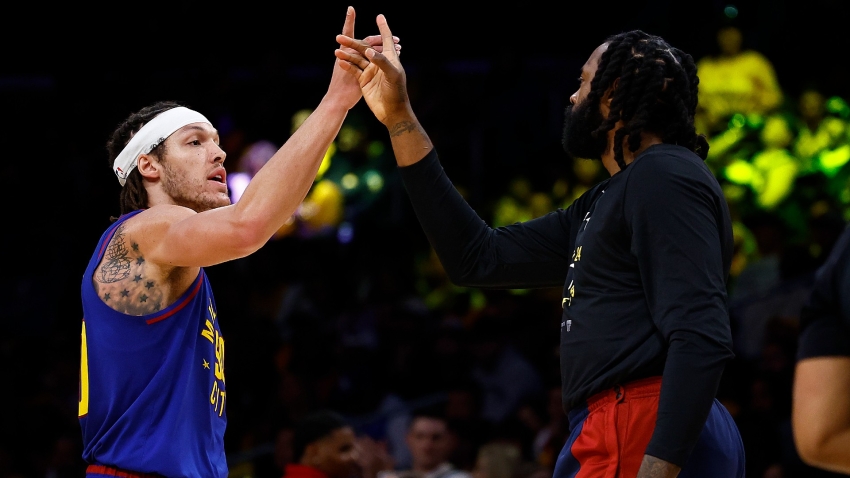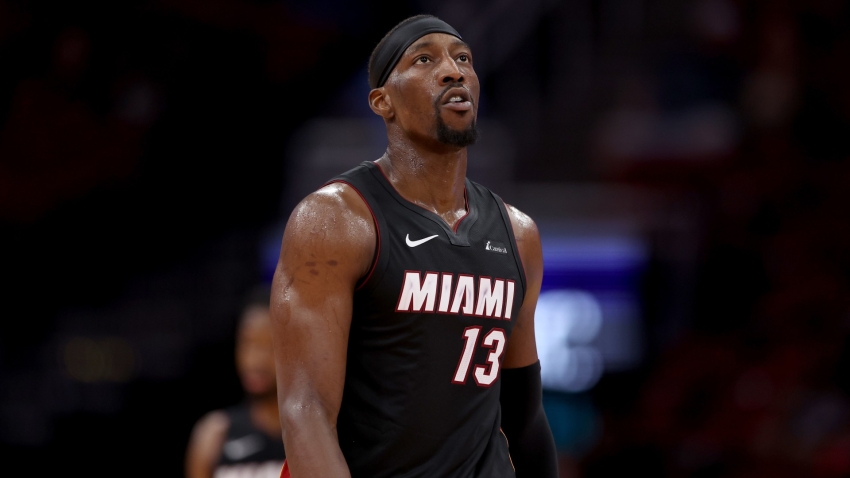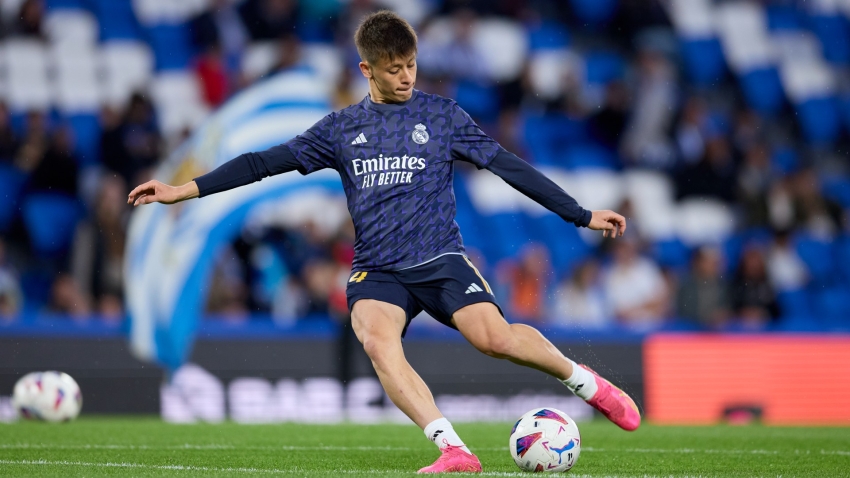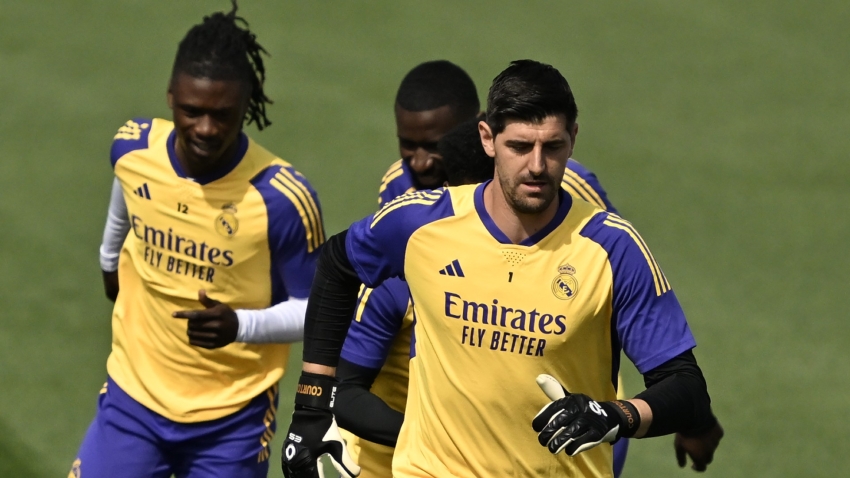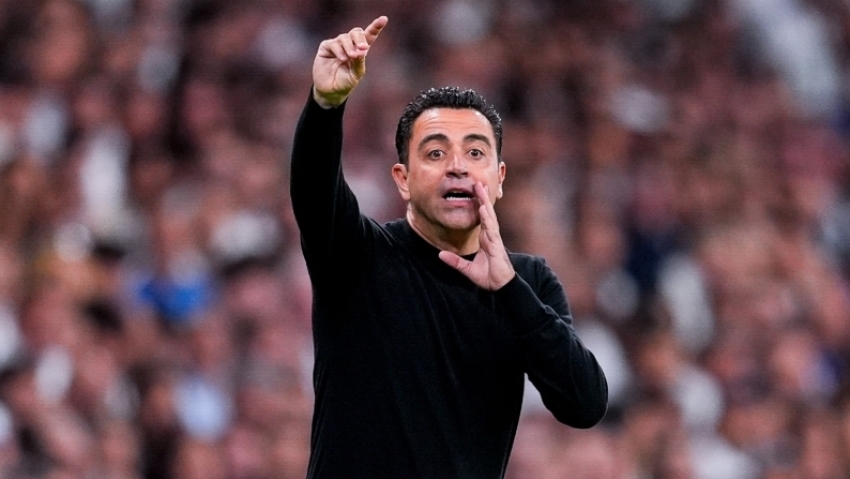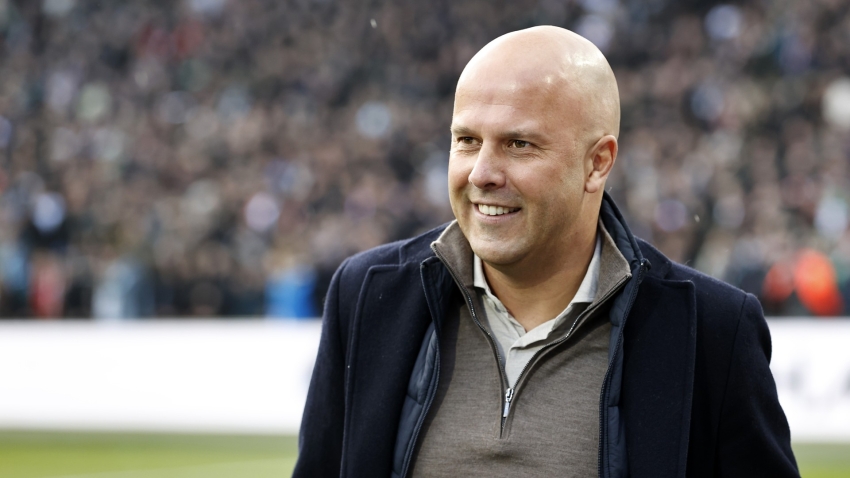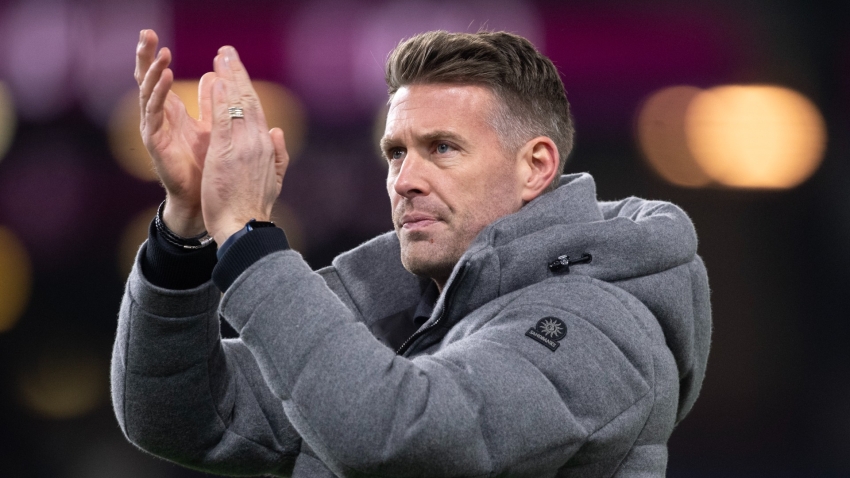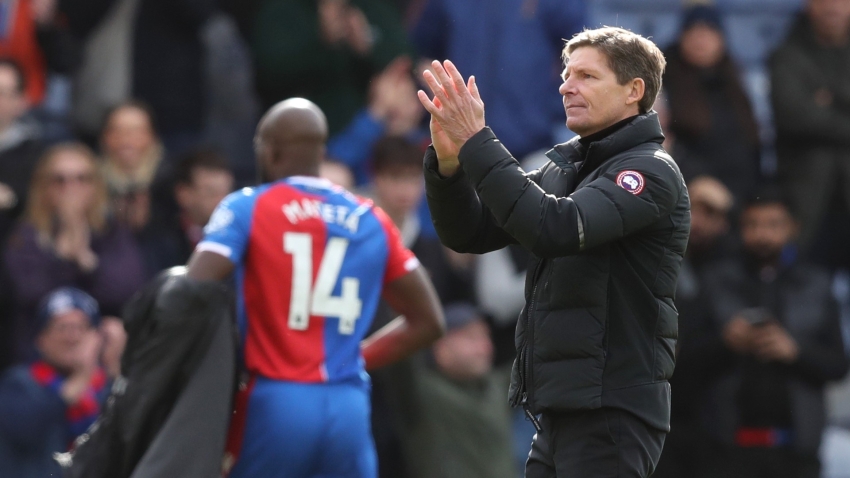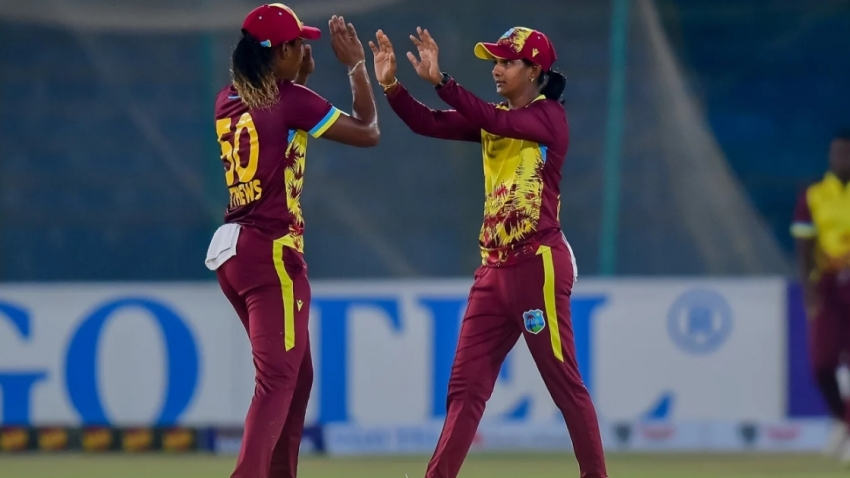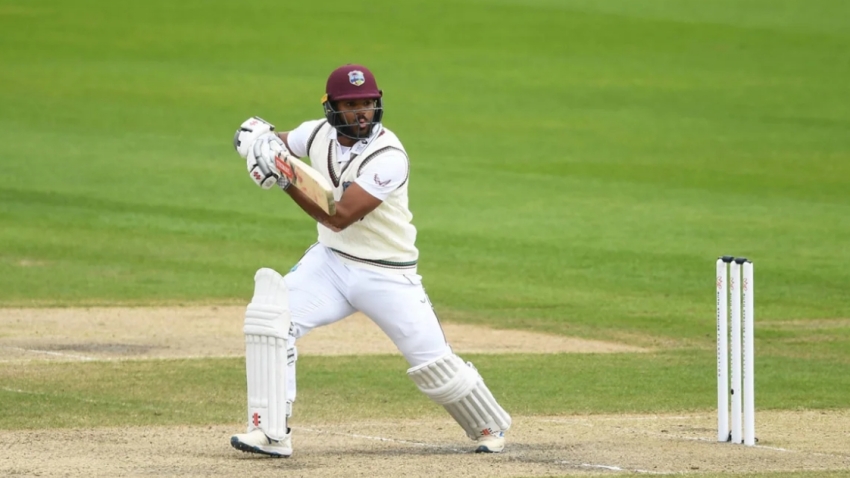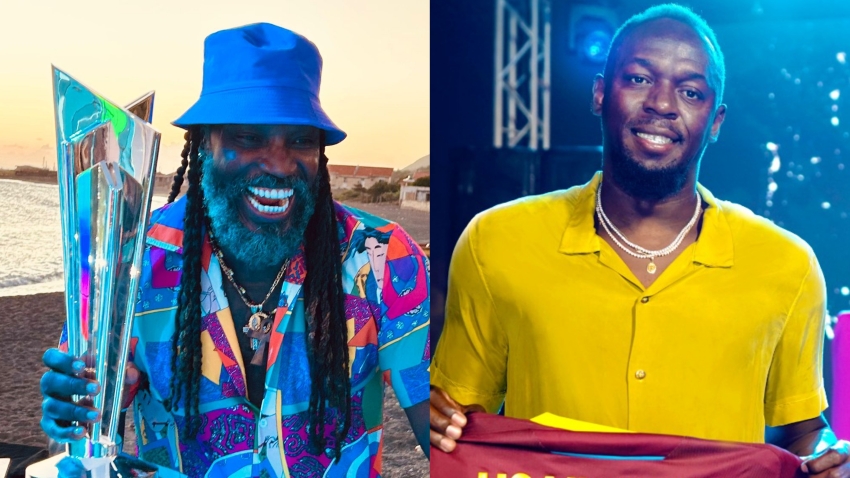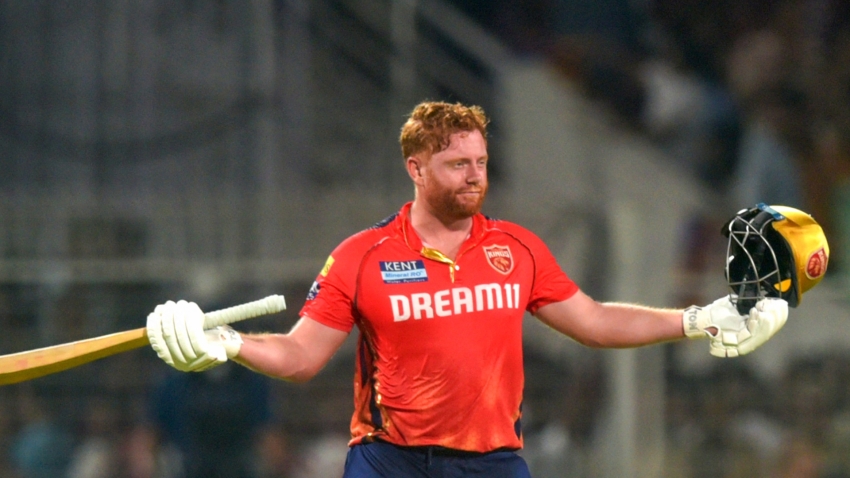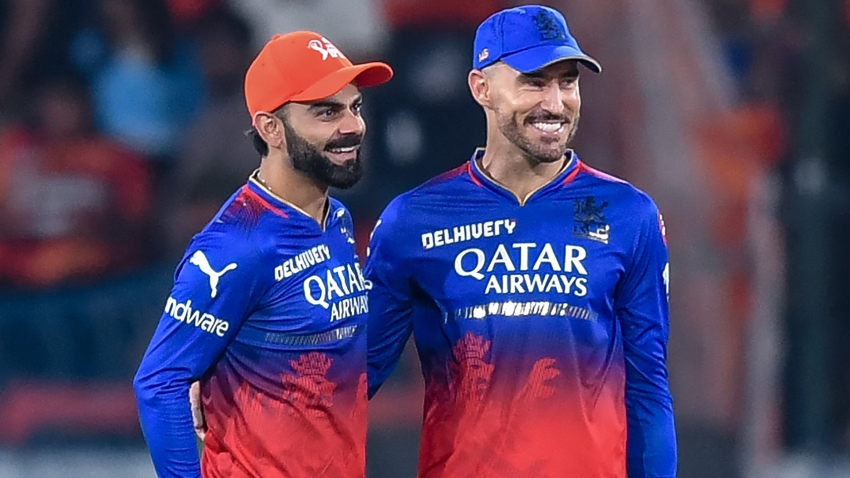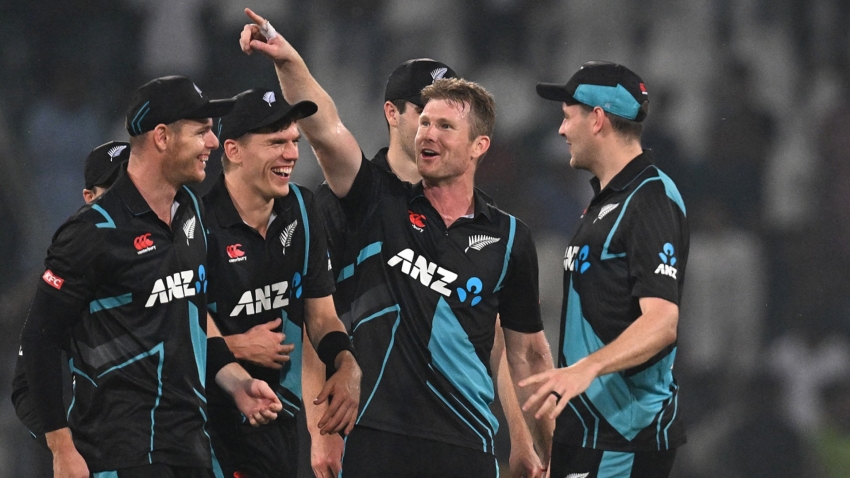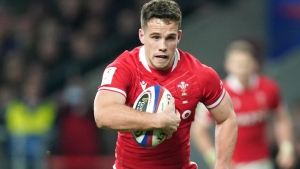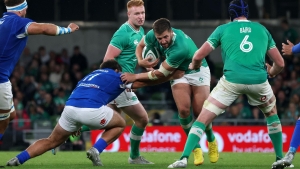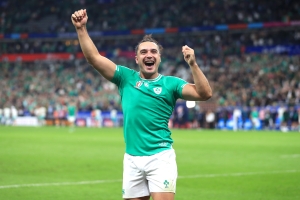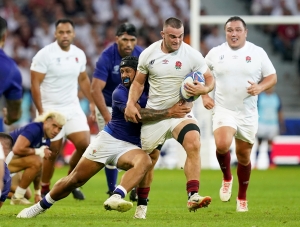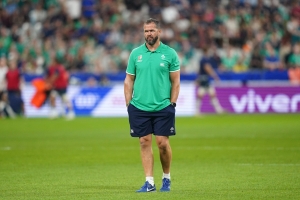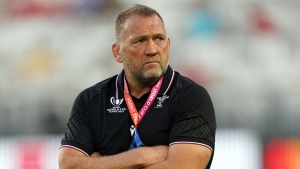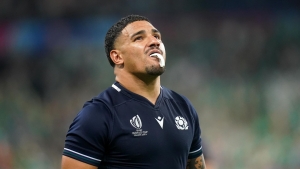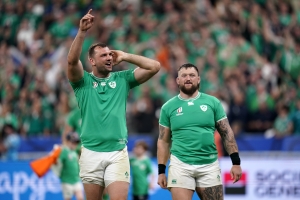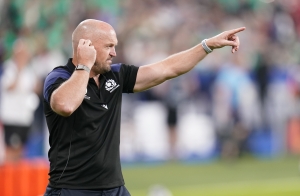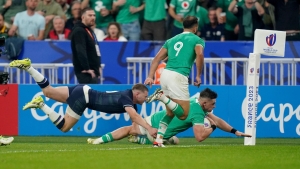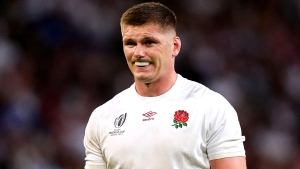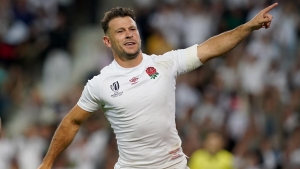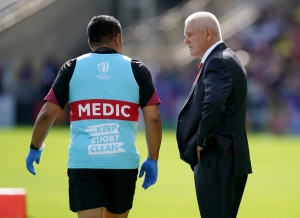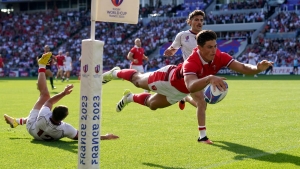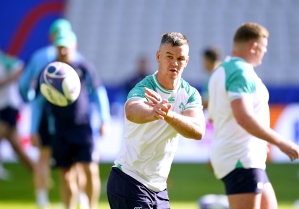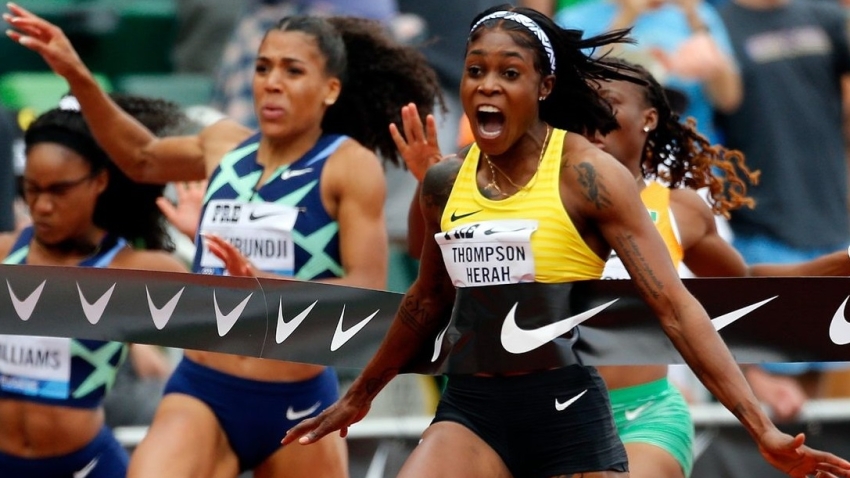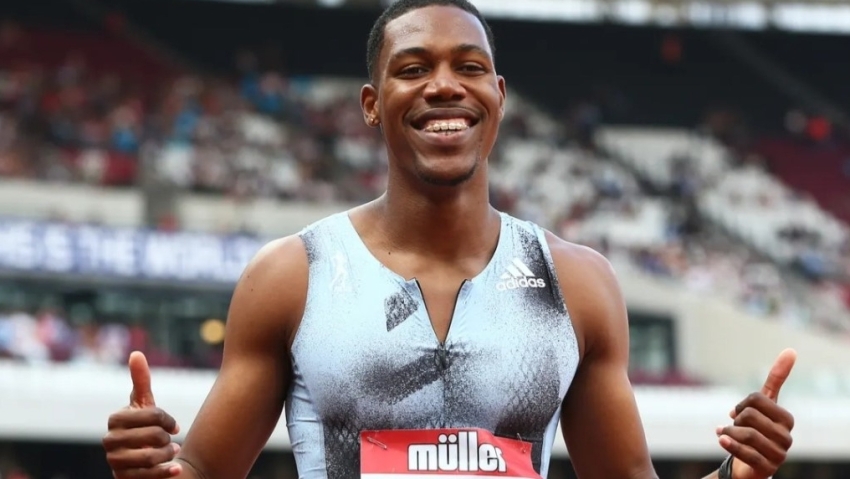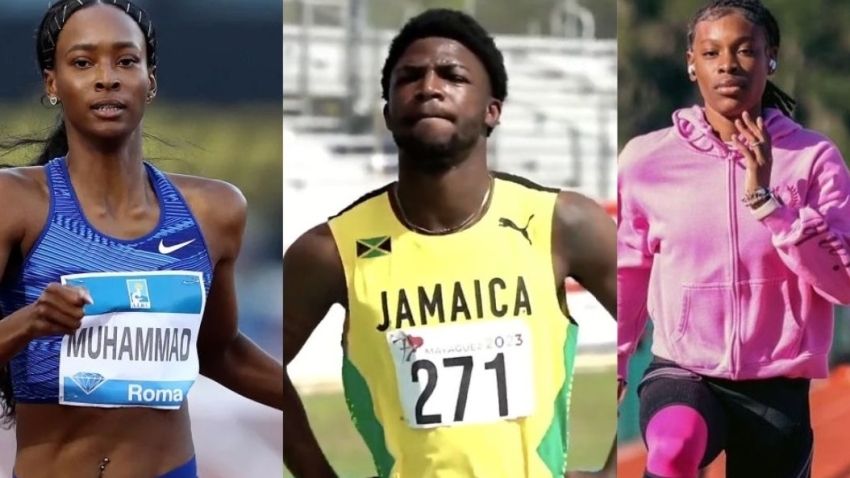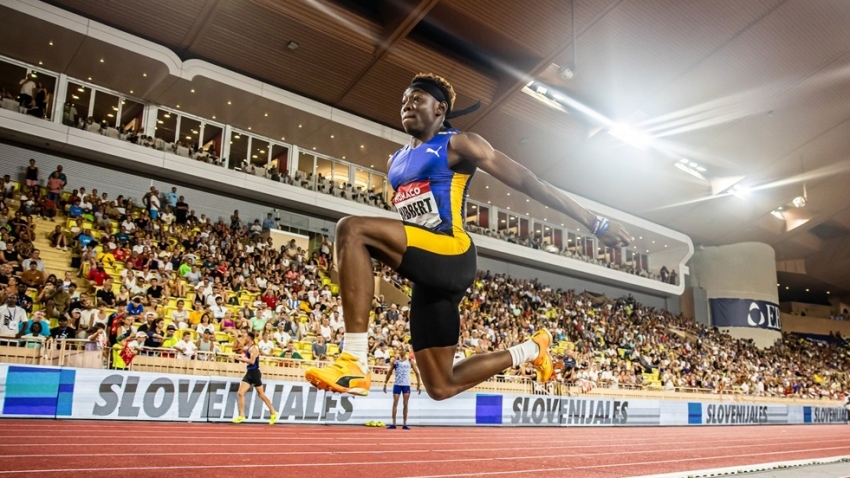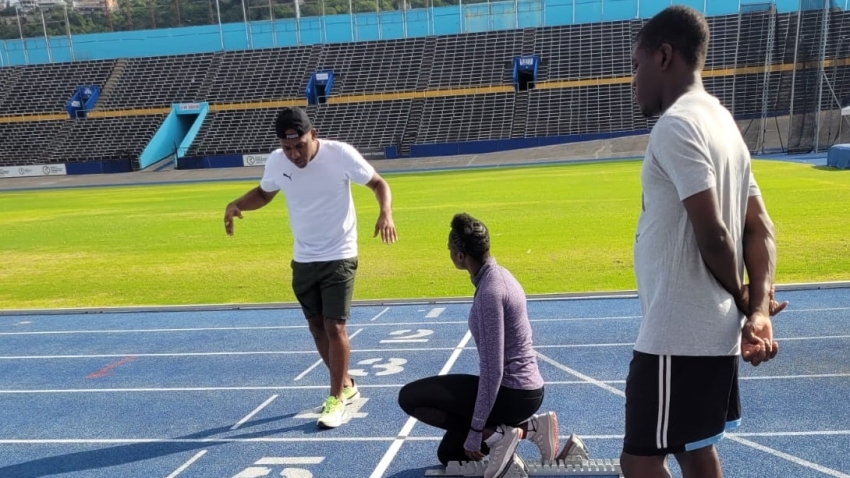Wales won their Rugby World Cup group and maintained an unbeaten march to the quarter-finals after beating Georgia 43-19 at Stade de la Beaujoire.
Warren Gatland’s team needed one point to finish top of Pool C after securing a last-eight place almost two weeks ago by defeating Australia in record-breaking fashion.
And they accomplished it on the same ground that 16 years ago Fiji condemned them to a World Cup pool-stage exit.
Wing Louis Rees-Zammit scored three tries, while there were also touchdowns for prop Tomas Francis, full-back Liam Williams and centre George North.
Wales ensured there would be no repeat of Georgia’s shock 13-12 success in Cardiff during the 2022 autumn Tests as they overcame fly-half Gareth Anscombe’s withdrawal just 45 minutes before kick-off due to a groin injury.
Anscombe’s late replacement Sam Costelow kicked five conversions and a penalty, although Georgia fought back to 24-19 adrift at one point through tries from Merab Sharikadze, Vano Karkadze and Davit Niniashvili, with Luka Matkava kicking two conversions.
A protracted mass brawl late in the game that spilled over the touchline and involved replacements from both sides saw Niniashvili and Wales substitute Taine Basham yellow-carded.
Wales were home and dry by this stage, although there was more injury concern when number eight Taulupe Faletau went off nursing what appeared to be a wrist problem.
Costelow mixed his running and kicking game well in the early stages, but Wales could get no change out of a well-organised Georgia defence.
There were plenty of errors in perfect playing conditions from both sides, but Wales broke the deadlock after 16 minutes.
A powerful lineout drive put Georgia on the back-foot, before Tomos Williams’ short inside pass resulted in Francis going over for a try that Costelow converted.
Wales had settled into a rhythm, and they struck from another attacking lineout just seven minutes later.
Lock Will Rowlands secured quality possession and, when the ball was moved wide Liam Williams finished impressively. Costelow’s conversion made it 14-0.
A Costelow penalty then opened up a 17-point advantage, and Wales appeared to be well on their way to a fourth successive pool victory.
Georgia regrouped as the first-half drew to a close, and Sharikadze claimed a try that Matkava converted following a sustained spell of pressure.
It was a warning for Wales that they could not switch off as they took a 17-7 lead into the interval.
Georgia began the second period on the front foot, but a midfield fumble saw North find Rees-Zammit, and the Gloucester speedster cruised clear from 60 metres out to claim his third try of the tournament.
Costelow converted, and it was exactly what Wales required after Georgia had threatened a fightback before the break.
Gatland changed the entire front row after 50 minutes, with Nicky Smith, Elliot Dee and Henry Thomas all joining the action.
And while Wales were comfortably ahead, Georgia kept searching for attacking opportunities in their final game of the competition after defeats against Australia and Fiji and a draw with Portugal.
Their resilience was then rewarded with 20 minutes left when replacement hooker Karkadze went over and Matkava converted.
And Georgia immediately conjured a third try, this time from Niniashvili, making it 24-18 and giving Wales plenty to be concerned about.
Gatland’s team were in danger of unravelling, but just when they needed it, Rees-Zammit applied a brilliant finish for his second try which Costelow converted, making it 31-19.
Biggar joined the action deep into the final quarter, and when Rees-Zammit claimed his hat-trick try, Wales were home before North’s try – and Wales’ sixth – completed the scoring, with Japan or Argentina now awaiting as their quarter-final opponents.


